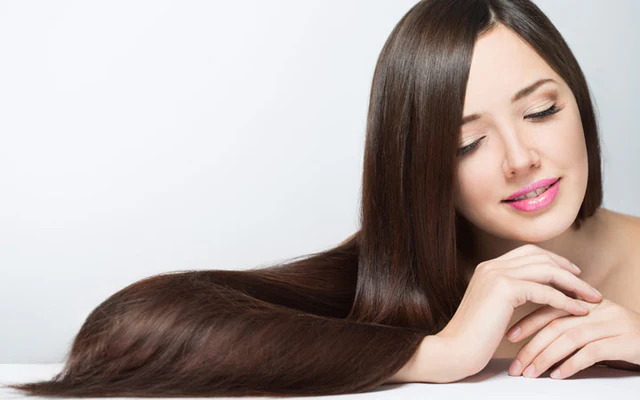Lets share the new post regarding the How to Grow Stronger Hair. Whether you’re struggling with hair thinning, hair loss, or simply want to improve the overall health of your hair. It involves a combination of proper hair care, healthy lifestyle choices, and some scientifically backed strategies. If you’re looking to boost your hair growth, it’s important to understand the various factors that contribute to hair growth and how to foster an environment that supports it.
In this article, we’ll cover practical tips, lifestyle habits, and hair care routines to help you grow your hair more effectively. Let’s dive into the essential elements of achieving longer, stronger, and healthier hair.
1. Eat a Balanced Diet for How to Grow Stronger Hair
Just like the rest of your body, your hair needs proper nutrition to grow. A well-balanced diet rich in vitamins, minerals, and proteins can significantly impact.
Read More How to Get Healthy Face Skin
Key Nutrients for How to Grow Stronger Hair:
- Protein: Hair is primarily made of keratin, a protein, so consuming enough high-quality protein is essential for hair growth. Foods like eggs, fish, lean meats, legumes, nuts, and seeds can provide the protein your hair needs to grow strong.
- Biotin: Biotin (vitamin B7) is one of the most well-known vitamins for hair health. It helps support the keratin structure and promotes hair strength. Biotin-rich foods include eggs, almonds, sweet potatoes, and spinach.
- Vitamin D: Research has shown that a deficiency in vitamin D can contribute to hair loss. To boost your vitamin D intake, spend time in the sun and eat foods like fatty fish (salmon, mackerel), fortified cereals, and egg yolks.
- Iron: An iron deficiency is a common cause of hair loss, especially in women. Ensure that your diet includes iron-rich foods such as spinach, lentils, red meat, and fortified cereals.
- Omega-3 Fatty Acids: Omega-3s help nourish the hair follicles and encourage growth. You can find omega-3s in foods like salmon, walnuts, chia seeds, and flaxseeds.
Hydration:
Drinking enough water is vital for the overall health of your hair. Dehydration can make your hair dry, brittle, and more prone to breakage. Aim for at least 8 cups (2 liters) of water per day to keep your hair hydrated and healthy.

2. Scalp Health Is Key
A healthy scalp is essential for promoting hair growth. The scalp is where your hair follicles are located, and if it’s not properly cared for, it can lead to poor hair growth or even hair loss. Here are some tips for maintaining a healthy scalp:
Regular Scalp Massage:
Massaging your scalp increases blood flow to the hair follicles, which can promote hair growth. You can massage your scalp gently for a few minutes every day or use oils to enhance the process. Massaging with oils like coconut oil, castor oil, or rosemary oil can nourish the scalp and provide additional nutrients to the hair follicles.
Exfoliate Your Scalp:
Just like the skin on your face, your scalp needs exfoliation to remove dead skin cells, sebum buildup, and product residue. You can exfoliate your scalp using a gentle scalp scrub or by mixing sugar with your shampoo. Exfoliation helps keep the hair follicles clear, which may encourage healthier hair growth.
Maintain a Clean Scalp:
Avoid the buildup of oils and hair products that can clog your scalp and hinder hair growth. Wash your hair regularly with a sulfate-free shampoo, and avoid overwashing, which can strip your hair of its natural oils.
3. Adopt a Proper Hair Care Routine
Your hair care routine plays a huge role in its health and growth. Here are some essential tips to ensure your hair grows healthy and strong:
Choose the Right Shampoo and Conditioner:
Select a shampoo and conditioner suited to your hair type and specific needs.Lets check example:
- For dry or damaged hair: Use moisturizing shampoos with ingredients like argan oil or shea butter.
- For fine or oily hair: Opt for a lightweight shampoo to prevent your hair from getting weighed down.
Avoid Excessive Heat Styling:
Frequent heat styling (e.g., blow-drying, straightening, curling) can damage your hair, leading to split ends and breakage. If you must use heat tools, always apply a heat protectant spray beforehand. Try to limit heat styling to a few times a week and embrace air-drying or heatless styles when possible.
Trim Regularly:
Although trimming won’t directly affect hair growth, it can help prevent split ends and breakage, which can hinder the appearance of growth. Regular trims (every 6-8 weeks) help keep your hair looking healthier and more vibrant.
Avoid Tight Hairstyles:
Tight ponytails, braids, or buns can cause hair breakage or even hair loss over time. Opt for loose, protective hairstyles that don’t put too much stress on your hair follicles.
4. Supplements for Hair Growth
While a balanced diet is the best way to provide your body with the nutrients it needs for healthy hair, some supplements can help boost hair growth if you’re lacking in certain vitamins or minerals.
Popular Supplements for Hair Growth:
- Biotin: A popular supplement for promoting hair strength and growth. It’s often included in multivitamins or sold as a standalone product.
- Collagen: Collagen supports the structure of the hair and skin. Many people find that collagen supplements help their hair grow thicker and shinier.
- Saw Palmetto: Some studies suggest that saw palmetto, an herb, may help prevent hair loss by blocking the hormone DHT (dihydrotestosterone), which is linked to hair thinning.
Always consult with a How to Grow Stronger Hair before starting a new supplement to ensure it’s appropriate for your needs.
5. Lifestyle Habits That Support Hair Growth
How to Grow Stronger Hair are integral to achieving optimal hair growth. Here are a few ways your lifestyle can affect your hair:
Reduce Stress:
Chronic stress is one of the leading causes of hair loss. Stress can push hair follicles into a shedding phase, leading to thinning or even bald patches. Engage in stress-reducing activities like yoga, meditation, deep breathing exercises, or regular physical exercise to help manage stress.
Get Enough Sleep:
Adequate rest is vital for overall health, including How to Grow Stronger Hair. During sleep, your body works to repair itself and regenerate cells, which includes supporting hair growth. Aim for 7-9 hours of quality sleep each night to allow your body and hair follicles to rejuvenate.
Avoid Smoking and Limit Alcohol:
Smoking restricts blood flow to the hair follicles, which can inhibit How to Grow Stronger Hair. Similarly, excessive alcohol consumption can dehydrate your hair and make it more prone to damage. Cutting back on smoking and alcohol can have a positive impact on your hair’s health.
6. Hair Growth Treatments and Remedies
If you’re looking for more targeted hair growth solutions, there are several treatments and remedies that may help stimulate hair growth.
Minoxidil:
Minoxidil is a topical treatment that has been FDA-approved for promoting hair growth in people with certain types of hair loss, particularly male and female pattern baldness. It works by stimulating the hair follicles and increasing blood flow to the scalp.
Platelet-Rich Plasma (PRP) Therapy:
PRP therapy is a medical treatment where your own blood is drawn, processed to concentrate platelets, and then injected into your scalp to promote hair growth. While research on its effectiveness is still ongoing, many people have found success with PRP treatments.
Hair Growth Oils:
Certain oils, like rosemary oil, peppermint oil, and castor oil, are often recommended for stimulating hair growth. These oils have been shown to increase blood circulation to the scalp and support follicle health.
7. Be Patient
Finally, it’s important to remember that hair growth takes time. On average, hair grows about half an inch per month, so it can take several months to notice significant changes in length or thickness. Be patient and consistent with your hair care routine, and allow your hair the time it needs to grow and thrive.




